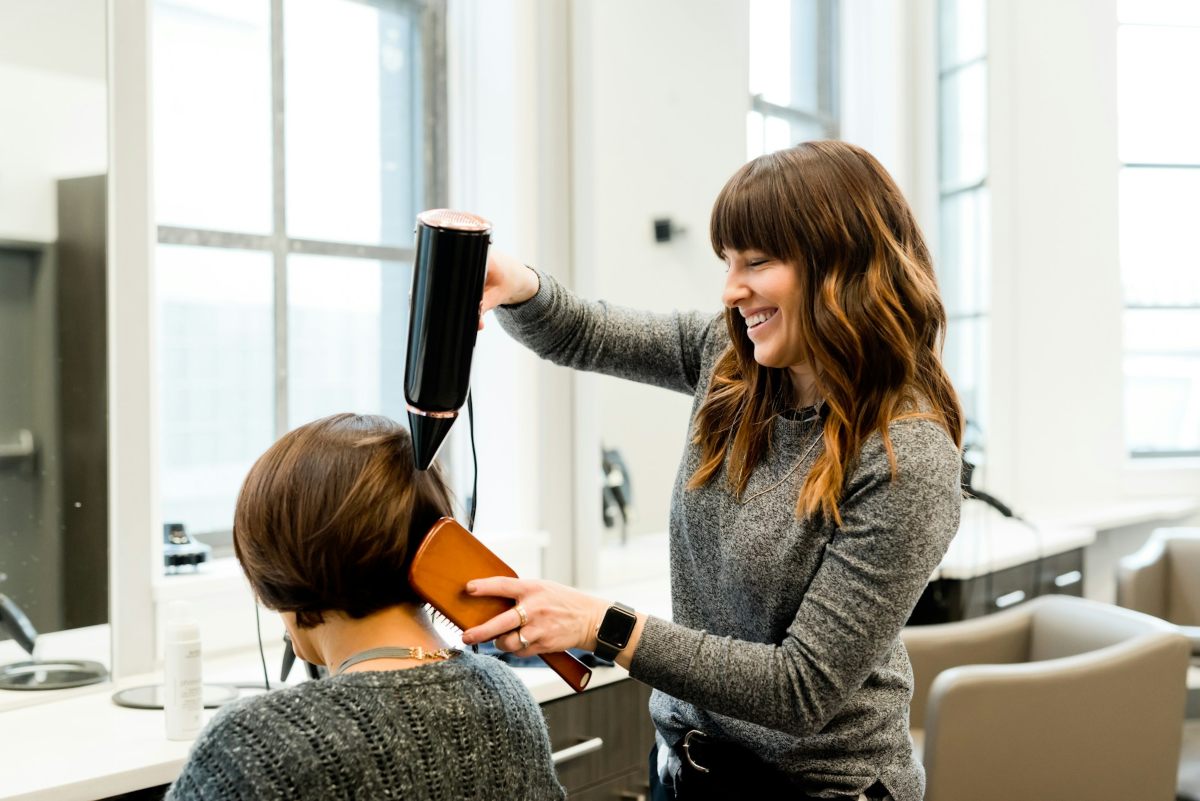So, your ideas and dreams are finally coming to fruition. You’re taking the sacred step that every skilled entrepreneur dreams of, but only a handful actually commit to. Starting a beauty salon business means standing out from the competition, providing a quality of service and atmosphere that will keep people coming back, and making sure you don’t fall foul of the small details that many fail to identify.
Before moving on to these, if you want to give your business plan a once-over, the GOV.UK site provides plenty of useful material for use in honing this crucial part of your planning.
6 Things to Consider When Starting a Beauty Salon Business

1. Have you found the perfect location?
Let’s get started. While you may have visited several locations and taken a good look at a number of premises, have you stopped to consider more than just the cost of the lease?
According to Startups.co.uk, the cost of starting a salon can range from £10,000 to £25,000, so it can be tempting to stick to the lower end of that range in order to save costs in the longer term.
However, have you considered the location’s convenience to customers and access for your staff – and, if you will be renting, the reputation of the person or business who owns the property?
2. Do you know the community?
Furthermore, do they know you? Make sure you find out about other local businesses, for potential links or promotions, and any potentially unruly neighbors who might be against a beauty salon opening nearby.
A school in the area could scupper parking at certain times of day, while local leisure facilities could provide you with a good chain of potential customers who already spend time, and money, at local businesses.
3. Hair and Beauty Clients
Another thing you should consider and who your clients will be or who customers will be. You should certainly be looking into your target market and demographics such as age group. This then moves into managing your marketing and publicity which is also an impact factor.
4. What can you do that other businesses can’t?
Unless you’re in a very small town, there are already likely to be several competitor salons. Take a look at what they do, who their customers are, and what you can do for them that other beauty salons have missed. This way, you’re not only standing immediately out from the crowd, you’re also challenging your competitors to up their game – while being one step ahead from the moment you open your doors.
You should know about your competitor’ services, products, promotions, offers, new treatments and techniques. You should be aware of the latest trends in beauty industry and make sure that your USP sets your salon apart from your competitors. Your USP should be an integral part of your business plan especially.
5. Would you be happy, whatever happens?
A thought-provoking piece of advice from Forbes for people setting up their own business is to consider how you’d feel if you had no money at all. If it takes time to get your beauty salon off the ground, ask yourself if still doing what you love, and working for yourself, would still be rewarding if you were struggling for a reliable income.
As there are numerous reasons why your income might initially fluctuate, it’s worth having insurance from a company like Salon Gold to cover you for such eventualities.
6. How do you look, both online and off?
The next key thing to investigate is how you are going to attract your clients. The next question to ask is where will you advertise? Will it be through newspapers, leaflets, local magazines or social media. You should make sure you have detailed marketing plan for the first 12 months and come back to it the following year to see what has worked and what has not worked. Though this may not be stressed enough, effective advertising and marketing are crucial to help create your brand image and awareness of your business.
While you’ll hopefully have numerous eager customers waiting on your doorstep, or at least in the local area, you can – of course – tap into many more online.
A simple website, or social media business page, can help your reputation grow with a wider audience – but make sure you meet their expectations when these people visit your salon. Once you’ve chosen a color scheme, and banners for your shop front, ensure this presence is reflected online.
Ideally you should aim to reach your audience with different forms of advertising and social media such as Instagram, Twitter or Facebook so you create maximum awareness and to help your name stay within client’s minds.
Anybody who finds your salon through its online presence, and drops by for treatment, will walk in with a preconceived expectation of your service, so don’t let them down in any way!
PS: if you are planning to start a new salon business and worried about its startup financing, try this startup business calculator. It is completely free and you don’t have to sign up to use it.
Read Also:
- How to Get New Clients for Your Hair Salon
- The World Beauty Industry: The 4 Most Highly Paid Jobs
- 3 Tips For Starting a Business of Your Own
Author: Edwin Owusu Peprah
















